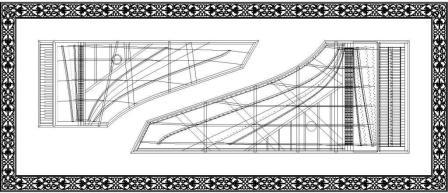Mozart and Prague
Mozart and Prague

Listening today to Mozart's Symphony in D major KV 504 (Prague
), I was struck by a rather odd coincidence.
You all know the story behind the work, right? Mozart had composed his opera Le Nozze di Figaro in 1786 for the Italian Opera Company of Prague. When the work was premiered,
it was a smash hit. Weeks later, all of Prague was singing the tunes from Le Nozze on street corners and in the taverns. The biggest theatrical hit of Mozart's career, far bigger than
anything he had experienced from the fickle Viennese audiences.
The Italian Opera Company invited Mozart back the following year by commissioning another opera from him. He gave them Don Giovanni, his greatest opera (OK—I know some people
will say it's Le Nozze) and one of the supreme achievements of Western culture, in my humble opinion. Mozart also wrote the Prague Symphony for an Academie that he gave in conjunction
with the premiere of Don Giovanni. The last movement of the symphony contains a near-quote from one the arias in Le Nozze—the audience would definitely have taken notice of this.
KV 504 is the grandest symphony Mozart had written up to that point, easily the equal of any of the three final symphonies from the summer of 1788 (KV 543 in E-flat, KV 550 in G minor,
and KV 551 in C major Jupiter
), although often overshadowed by these. The symphonic style of KV 504 combines the usual trumpet and drum
material with a new element: the
North German polyphonic style of Sebastian and Emanuel Bach that Mozart had imbibed through the efforts of Baron Van Swieten. The first movement in particular is unusually complex and
stirring; even the accompanying figures are inventive and memorable. The attentive listener will find such an abundance of musical ideas that following the score becomes mandatory.
The coincidence is this: the city of Vienna spurned Mozart during his lifetime, but conveniently embraced him as one of their own
in the following century. Prague, on the other
hand, never let go of the Mozart legacy. Yet during WWII, which city was bombed to smithereens, and which city was spared? Coincidence? Comeuppance? The wrath of God? You decide.
Meanwhile, the final irony is that when it came time to film Amadeus
(1984), which city was choosen as a stand-in
for Vienna? You guessed it.

